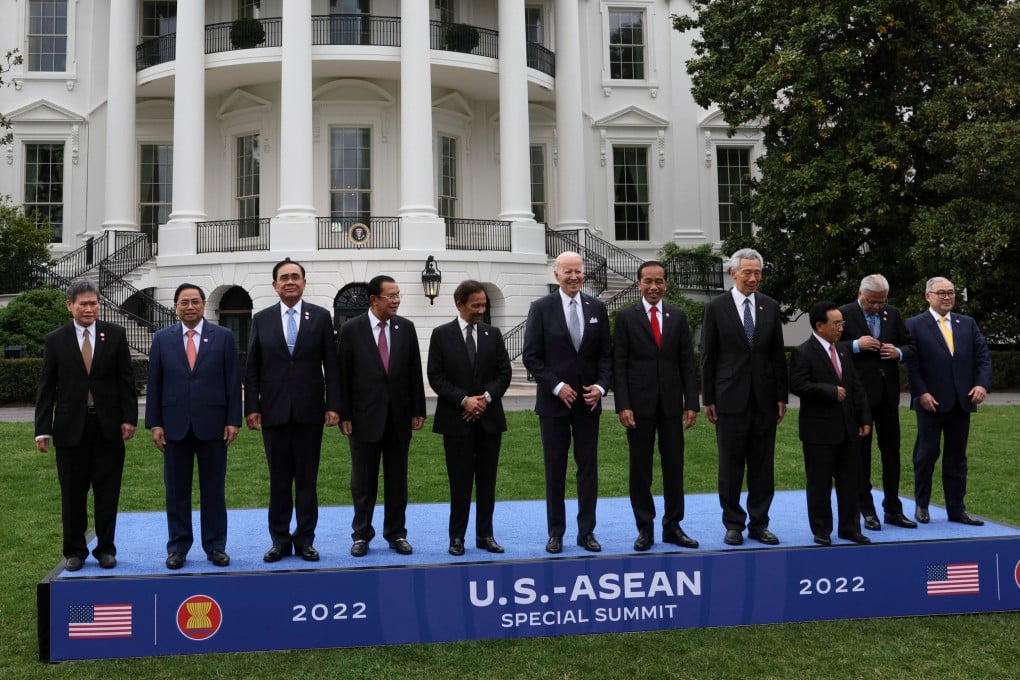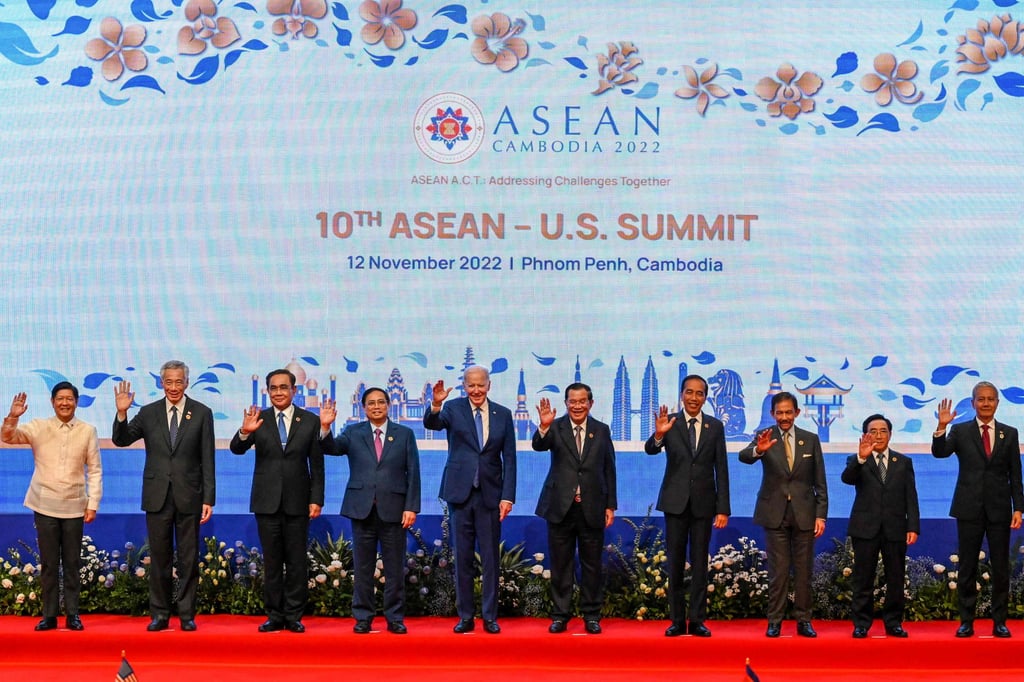Asian Angle | US should step up diplomacy in Southeast Asia amid China’s growing economic influence
- As China’s economic influence grows, the US needs to take Asean more seriously with regular visits by top officials including Biden
- It also needs to offer wider access to the US market, and understand that a vital safeguard against Chinese domination of the region is a strong Asean

Written by a joint task force of the Asia Society’s Centre on US-China relations and the 21st Century China Centrre of the University of California in San Diego, the report was prepared and launched on August 1 after careful consultations with both American and Southeast Asian experts. The proposals it makes are sensible but the challenge lies in their implementation.
It should step up its public diplomacy in Southeast Asia because US contributions are not well known in the region. The US should also urgently increase its economic engagement by joining regional organisations or consider negotiating a US-Asean free-trade agreement with substantial access to the American market.
These are all sensible proposals that would enhance the US’ profile and influence in Southeast Asia – if implemented successfully – and thereby help to maintain a balance of great power influence in the region.

